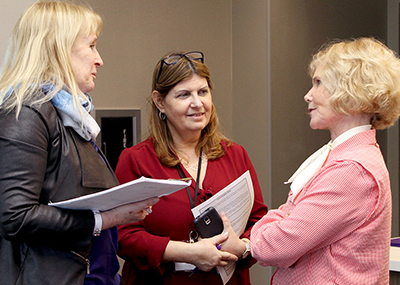About the Symposium

Research and practice literature within the fields of accessibility, disability and technology frequently identifies that practice within post-compulsory/post-secondary education institutions need to change or improve in order to ensure the full inclusion of students with disabilities. It is also not uncommon for this literature to point to specific models, frameworks or approaches (for example, universal design) that might inform such a transformation of practice. The premise of this first symposium is that we need more in-depth questioning and examination of the value and efficacy of such models, frameworks or approaches. In this symposium, through individual presentations and a range of group activities we applied a critical lens to the fields that study students with disabilities, ICT, post-compulsory/post-secondary education and employment. Our goal was to seek answers to the following questions:
- What evidence is there that universal design is effective in various applications and contexts and with a variety of stakeholders? Can this model inform the practice of all relevant stakeholders within post-compulsory education?
- What other models, frameworks or approaches exist and which stakeholders are they aimed at?
- How do various models, frameworks or approaches translate into practice?
- Do we need to develop new models, frameworks or approaches? If so, for what applications and stakeholder groups?
- How can models, frameworks or approaches transform practice? Are there alternative conceptual tools to help stakeholders utilize technologies with students with disabilities in more inclusive and accessible ways?